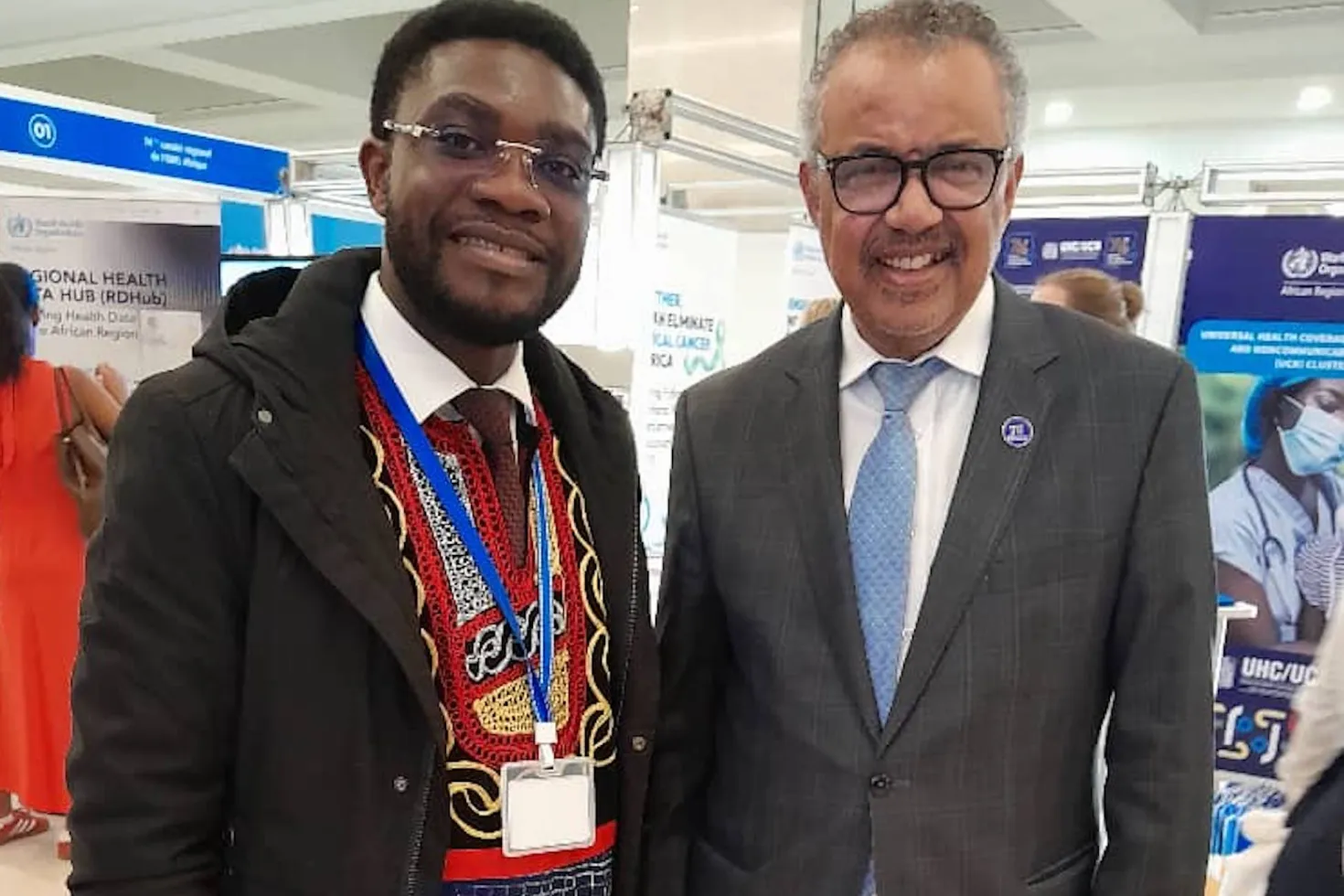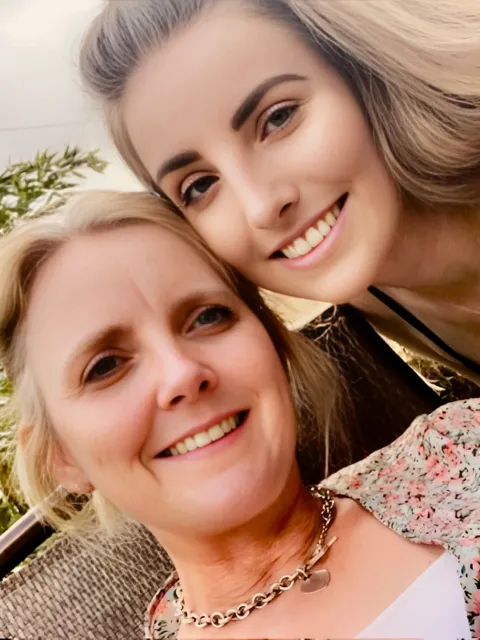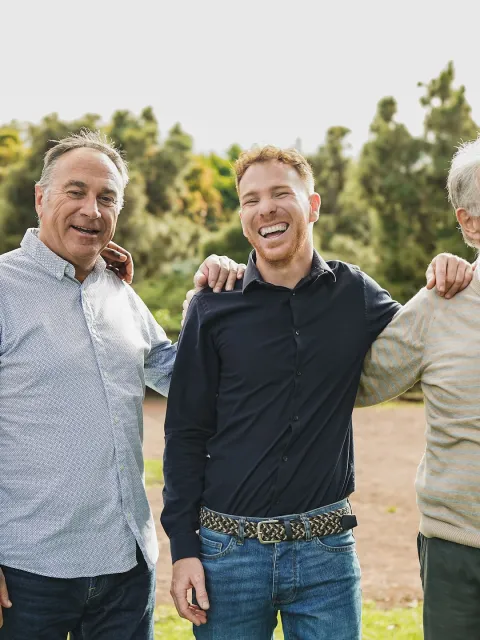WHO Regional Meetings 2024: strengthening global health collaboration
Delegates from UICC member organisations benefited from UICC’s official relations with WHO by attending WHO Regional Meetings 2024. These addressed key topics such as health financing, digital health, NCDs and climate resilience, and offered key advocacy and networking opportunities.

Ferdinant Mbiydzenyuy Sonyuy, CEO of RADA in Cameroon, a UICC member organisation, with Dr Tedros Adhanom Ghebreyesus, Director-General of WHO, at the African Regional Committee meeting.
HIGHLIGHTS
- Significant progress has been made in cancer control in recent decades through advancements in treatment methods and screening technology.
- Early detection and addressing risk factors are key to further progress in cancer control.
- Although mortality rates for some cancers have declined, there are still disparities in access to cancer services based on factors such as socioeconomic status, race, gender and cultural norms, sexual orientation, disability and geographical location.
- Efforts are being made by international organisations and governments to improve access to cancer services and strengthen health systems in low-income regions.
Each year, Member States from each of the World Health Organization’s (WHO) six regional offices are convened with technical experts and civil society organisations to discuss critical health issues.
These meetings aim to address common national and regional health challenges, by sharing best practices and developing actionable frameworks that support governments in adopting meaningful policies.
The focus of these meetings changes each year, but some of the key topics on the regional agendas in 2024 included climate change, health financing, and digital health, to help achieve universal health coverage. .
As an organisation in official relations with WHO, UICC has the unique opportunity to work with its members to participate in these discussions, and directly interact with experts and advocate with policymakers.
This year, UICC sent delegations to the regional meetings in the Americas, Western Pacific and Africa where its members delivered statements, connected with technical experts and shared perspectives from the cancer community in key discussions.
Three representatives of UICC member organisations attended the Western Pacific region (WPR) meeting: Carmen Auste, CEO of Cancer Warriors Foundation, Inc in the Philippines, Dr Tsetsegsaikhan Batmunkh, CEO of the National Cancer Council of Mongolia, and Mark Nevin, CEO of Cancer Council Australia. Key topics on the agenda included health financing, digital health, health system strengthening, primary healthcare access, and climate resilience.
In addition, the meeting provided a platform for UICC members to advocate for cancer control measures within the broader regional public health framework. Insights shared during the event underscored the importance of health equity, resilience, and the role of digital tools in advancing cancer awareness and care in the Western Pacific region.
“Leaning about models of climate-resilient and environmentally sustainable health-care facilities was particularly relevant as we are in the planning stage for rehabilitation camp for children with cancer that incorporates environmentally sustainable practices, including renewable energy usage, waste management, greywater use, and creating a green environment.”
– Dr Tsetsegsaikhan Batmunkh, CEO of the National Cancer Council of Mongolia
The African Regional Committee meeting was attended by Rolf Hansen, CEO of the Cancer Association of Namibia, and Ferdinant Mbiydzenyuy Sonyuy, CEO of the Reconciliation and Development Association (RADA) in Cameroon.
Key agenda items included frameworks for local medicine and vaccine production, climate-resilient health systems, and non-communicable disease (NCD) prevention. The session also emphasised building local capacities for medicine production and establishing data hubs to support cancer registries, enhancing Africa’s response to NCDs through data-driven policies.
Working with UICC, Rolf and Ferdinant developed and delivered statements supporting a regional framework to strengthen local production of medicines and vaccines to improve cancer prevention and treatment, ensuring that pain medicines for palliative care were not forgotten.
The delegation also delivered statements applauding Member States progress on cervical cancer elimination, and urging them use the expertise of patients, survivors and CSOs in supporting the initiative regionally; as well as welcoming a proposed regional framework for health data that should build on existing can registries to help shape more equitable health policies and investments.
UICC member delegates further contributed to discussions on climate-resilient healthcare, aligning with regional needs for sustainable health infrastructure and food safety policies that address nutrition’s role in cancer prevention.
“It was very insightful and a brilliant networking opportunity to not only meet my local colleagues in health, but also regional and continental partners in both health ministries and non-governmental stakeholders.”
– Rolf Hansen, CEO of the Cancer Association of Namibia
Alexandra Núñez, Founder and President of Unidos Contra el Cáncer in Costa Rica, represented UICC at the regional meeting for the Americas (PAHO), where participants discussed the need to strengthen partnerships for UHC, expand healthcare access for underserved populations, and tackle non-communicable diseases (NCDs) more widely.
Discussions also underscored the importance of a ‘whole-of-society’ approach, where collaboration between governments, civil society organisations, and public-private partnerships is seen as essential for advancing health goals across the Americas.
A particular focus was given to health equity, especially in engaging indigenous communities, and addressing food security and its impact on NCDs, acknowledging that nutrition plays a central role in cancer prevention.
The sessions highlighted PAHO’s regional initiatives, such as the Cervical Cancer Elimination Initiative, to combat high-impact diseases through early detection and treatment. UICC representatives advocated for expanding cancer screening and treatment accessibility, particularly in areas with limited healthcare infrastructure.
The WHO regional meetings are not just a means of engagement but also of professional development, offering unique networking opportunities, as individuals from UICC member organisations connect with high-level policymakers and local and regional health experts.
Overall, UICC delegates found that the meetings provided useful perspectives on the political and diplomatic dimensions of health policy, and offered a new appreciation of how countries address practical limitations in meeting health objectives.
Last update
Wednesday 27 November 2024
